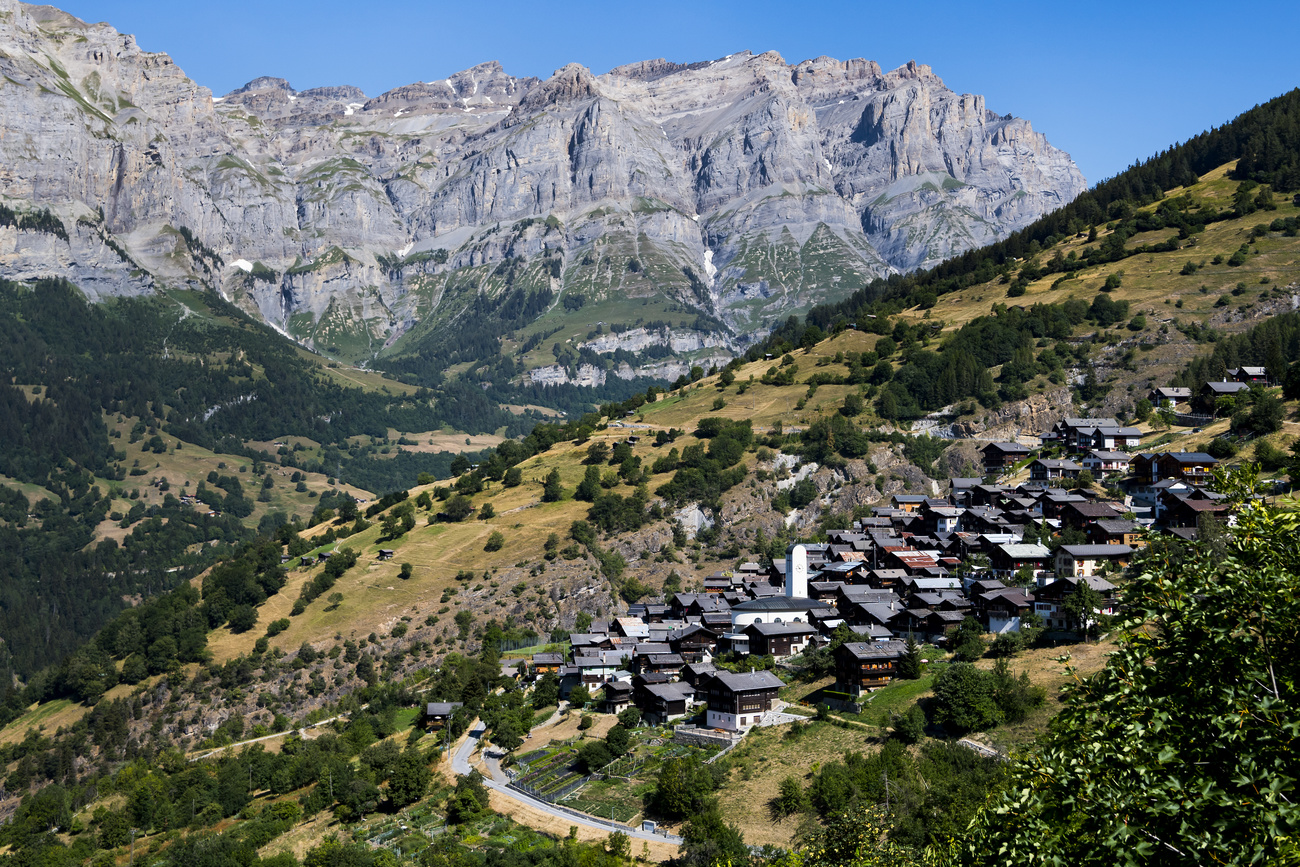
Perks and relocation: Swiss village of Albinen overwhelmed by foreign demand

A Swiss Alpine village has been swamped with 100 overseas applicants per day after handing out financial perks to new residents.
In 2017, Albinen voted to offer a CHF25,000 ($28,000) inducement for adults and CHF10,000 for children to make their home in the village in the southwest canton of Valais.
+ Read how Swiss villages seek to reverse population declines
The scheme was designed to counter a steady outflow of its population – which had shrunk to just 200 – to larger towns.
“We’re pleased to see how the village has been swept up in a feeling of optimism,” Albinen mayor Beat Jost told SWI swissinfo.ch two years into the scheme. “Albinen is alive! And that’s exactly what we wanted.”
But the inducement scheme has partially backfired as international media coverage led to an unforeseen administrative burden.
+ Guide to living and working in Switzerland
“We get around a hundred enquiries a day. Most come from abroad and do not meet our conditions. We must still answer them and that is a lot of work,” current mayor Nicole Köppel told the Watson.ch news portal.
Initially, the scheme was only open to new residents aged under-45, with CHF200,000 to invest in real estate and at least a C permit, which allows them to live in Switzerland for five years.
The cash inducements were later delayed until new residents had taken root in Albinen for five years.
The village has approved 17 applications, attracting nearly 50 new residents, at a cost of CHF710,000, Watson.ch reports.
“Albinen has no school, no bank, no post office, one remaining pub, one shop and a bus every hour. You have to anticipate that beforehand and accept it when you’re here,” says Köppel.

More
Majority of Swiss want to limit immigration

In compliance with the JTI standards
More: SWI swissinfo.ch certified by the Journalism Trust Initiative































You can find an overview of ongoing debates with our journalists here . Please join us!
If you want to start a conversation about a topic raised in this article or want to report factual errors, email us at english@swissinfo.ch.